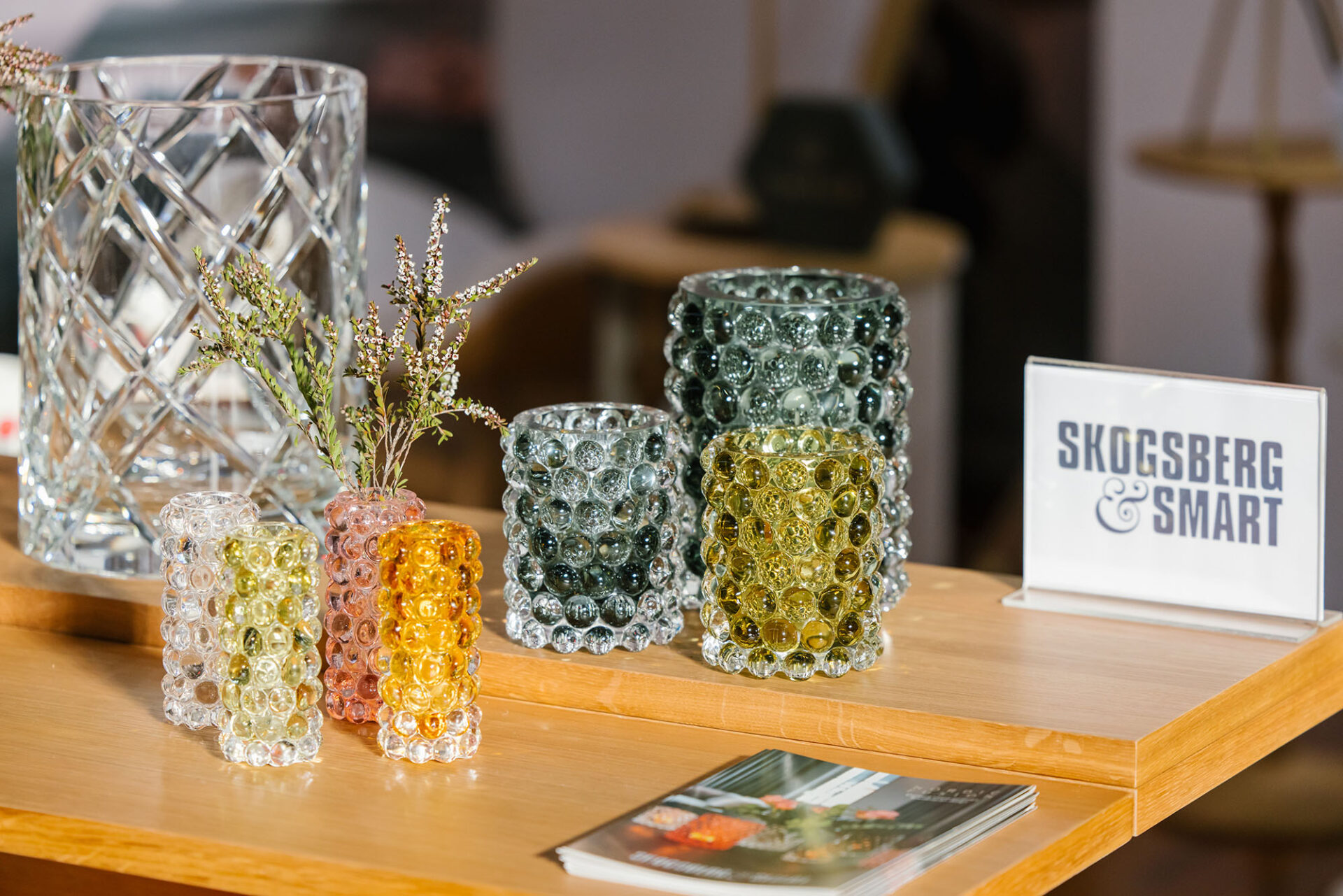The Slow Office Movement

- Words by Peppermint
Many of us are nicely familiar with slow food and slow fashion – but what about applying those principles of mindfulness and conscious consumption to your workspace?
The Slow Movement began in Rome in 1986, when concern about the introduction of fast-food chains into Italy triggered a push for slower, more thoughtful food production and consumption. From there it grew into a cultural revolution around the world, extending beyond the dinner table into design, technology, travel and the workplace – and the modern-day office can be one of the hardest places to embrace a slower pace. Surrounded by hurriedness and activity, being ‘busy’ is often commended and the notion of slowing down seen as counterproductive – how can doing less possibly be better for business?
On the contrary, an opportunity to put the brakes on and be fully present at work can improve focus and spark creativity. Forward-thinking companies are finding ways to help their staff pause and reconnect, with office yoga, flexible hours and even afternoon naps on offer. Corporate meditation and mindfulness are on the rise, with employers realising the power of slowing down. If you work for such a company, lucky you! If not, here are some simple practices that will encourage a more mindful, meaningful workday.
As with most aspects of daily life, a ‘quality over quantity’ approach allows more room for the things that matter
Clear away clutter
As with most aspects of daily life, a ‘quality over quantity’ approach allows more room for the things that matter – not to mention the stress, distraction and overwhelm that physical clutter can create. Start afresh by removing anything from your workspace that isn’t inherently useful, beautiful and practical, including dirty cups, expired pens and old Post-Its. Seek out objects that spark joy, have been made ethically and evoke sensory pleasure, from the tactility of a ceramic mug to the smell of wooden pencils. Your desk will soon become a place of calm rather than anxiety!
Prepare healthy snacks
Mindless munching feels commonplace at work, where stress, tiredness or boredom can drive you to make a beeline for the vending machine. Avoid temptation by preparing delicious and nourishing snacks at the start of the working week so you’ve always got something on hand. Try celery and carrot sticks with hummus, banana chia pods, and plenty of fruit and nuts – you’ll save yourself the sugar crash and will feel more focused throughout the day.
Laying some ground rules about when and where you check social media can save hours of thoughtless scrolling
Practice digital discipline
While the Internet is crucial to many jobs, and while we appreciate all the wonderful things the web offers, it can also be easy to fall victim to time-consuming and energy-sapping online habits. Laying some ground rules about when and where you check social media can save hours of thoughtless scrolling – this can be a simple as turning off instant notifications on your phone and limiting Instagram to out-of-office hours.
Take regular breaks
Trying to maintain focus for hours at a time is bad for your health and your work, causing eye strain, creating tension throughout your body that can lead to injury, and resulting in mistakes due to poor concentration. Take a break from your desk for five to 10 minutes every hour to stand up and look away from the screen, using this time to rehydrate and do some stretches. You’ll return to your desk with more energy and a fresh perspective.
Connect with nature
Exposure to fresh air and sunlight is a sure fire way to you help you feel human again after a few hours inside a confined office. Make the most of your lunch break by heading to a local park or garden – even a stroll around the block will do wonders for your headspace. Can’t get outside? Try bringing a bit of nature indoors – a peace lily or snake plant are hardy options for an office environment that will purify the air and bring some green goodness to your desk.
Embrace daily rituals
We all crave routine to some extent, and small daily rituals can have a similar effect of helping us feel grounded and balanced. It might be writing down your intention for the day, closing your eyes and taking 10 deep breaths, making a cup of peppermint tea or watering your aforementioned desk plant – each action is a little reminder of what we care about and what makes us happy. No matter the task, give it all your attention, savouring the smells and sounds around you. In the end it is these moments, not minutes on the clock, that make up our days.
WORDS: SAMANTHA VAN EGMOND
JOIN OUR MAILING LIST
Brighten up your inbox with our not-too-frequent emails featuring Peppermint-related news, events, competitions and more!
explore
More articles
Look, I don’t want to make anyone panic but IT’S DECEMBER!!! If you’re planning to give homemade gifts, you’re going to have to act fast. …
Hang out with us on Instagram
🌻 The Paddington 🌻
This is a much-loved staple, created for Issue 50 in 2021. We love seeing the #PeppermintPaddingtonTop continually popping up in our feeds!
How stunning is our model Elon MelaninGoddessEfon – she told us it was one of the first times she had been asked to come to a shoot with her natural hair. 🌻
We worked with South African patternmaker Sarah Steenkamp of @FrenchNavyNow_ to create this wardrobe essential – the perfect puff-sleeve blouse. Raglan sleeves make it the ultimate beginner sew, plus the gorgeous back buttons let you add your own personal twist.
Pattern via the link in bio! 🪡
Photos: @KelleySheenan
Fabric: @Spoonflower
Model: MelaninGoddessEfon

“In the 1940’s, Norwegians made and wore red pointed hats with a tassel as a form of visual protest against Nazi occupation of their country. Within two years, the Nazis made these protest hats illegal and punishable by law to wear, make, or distribute. As purveyors of traditional craft, we felt it appropriate to revisit this design.”
Crafters have often been at the heart of many protest movements, often serving as a powerful means of political expression. @NeedleAndSkein, a yarn store in Minnesota, are helping to mobilise the craftivists of the world with a ‘Melt The Ice’ knitting pattern created by @Yarn_Cult (with a crochet pattern too), as a way of peaceful protest.
The proceeds from the $5 pattern will go to local immigrant aid organisations – or you can donate without buying the pattern.
Raise those needles, folks – art and craft can change the world. 🧶
Link in bio for the pattern.
Images: @Gather_Fiber @NeedleAndSkein @a2ina2 @KyraGiggles Sandi.204 @WhatTracyMakes AllieKnitsAway Auntabwi2
#MeltTheIce #Craftivism #Knitting #CraftForChange

TWO WEEKS TO GO! 🤩
"The most important shift is moving from volume-led buying to value-led curation – choosing fewer, better products with strong ethics, considered production and meaningful stories. Retailers have real influence here: what you buy signals what you stand for. At Life Instyle, this means using the event to discover and invest in small-scale, planet-considerate brands that align with your values and your customer’s conscience. Consumers don’t need more things; they need better things, and retailers play a key role in selecting, contextualising, and championing why those products matter."
Only two more weeks until @Life_Instyle – Australia`s leading boutique retail trade show. If you own a store, don`t miss this event! Connect with designers, source exquisite – and mindful – products, and see firsthand why this is Australia’s go-to trade show for creatives and retailers alike. And it`s free! ✨️
Life Instyle – Sydney/Eora Country
14-17 February 2026
ICC, Darling Harbour
Photos: @Samsette
#LifeInstyle #SustainableShopping #SustainableShop #RetailTradeEvent

Calling all sewists! 📞
Have you made the Peppermint Waratah Wrap Dress yet? Call *1800 I NEED THIS NOW to get making!
This gorgeous green number was modelled (and made) by the fabulous Lisa of @Tricky.Pockets 🙌🏼
If you need a nudge, @ePrintOnline are offering Peppermint sewists a huge 🌟 30% off ALL A0 printing 🌟 when you purchase the Special Release Waratah Wrap Dress pattern – how generous is that?!
Head to the link in bio now 📞
*Not a real number in case that wasn`t clear 😂
#PeppermintWaratahWrapDress #PeppermintPatterns #SewingPattern #WrapDress #WrapDressPattern

8 Things to Know About January 26 - from @ClothingTheGaps:
Before you celebrate, take the time to learn the truth. January 26 is not a day of unity it’s a Day of Mourning and Survival for Aboriginal and Torres Strait Islander peoples.
It marks the beginning of invasion, dispossession, and ongoing colonial violence. It’s time for truth-telling, not whitewashed history.
Stand in solidarity. Learn. Reflect. Act.
✊🏽 Blog written by Yorta Yorta woman Taneshia Atkinson.
🔗 Link in bio of @ClothingTheGaps to read the full blog
#ChangeTheDate #InvasionDay #SurvivalDay #AlwaysWasAlwaysWillBe #ClothingTheGaps

As the world careens towards AI seeping into our feeds, finds and even friend-zones, it`s becoming increasingly hard to ignore.
We just wanted to say that here at Peppermint, we are choosing to not print or publish AI-generated art, photos, words, videos or content.
Merriam-Webster’s human editors chose `slop` as the 2025 Word of the Year – they define it as “digital content of low quality that is produced usually in quantity by means of artificial intelligence.” The problem is, as AI increases in quality, it`s becoming more and more difficult to ascertain what`s real and what`s not.
Let`s be clear here, AI absolutely has its place in science, in climate modelling, in medical breakthroughs, in many places... but not in replacing the work of artists, writers and creatives.
Can we guarantee that everything we publish is AI-free? Honestly, not really. We know we are not using it to create content, but we are also relying on the artists, makers and contributors we work with, as well as our advertisers, to supply imagery, artwork or words created by humans. AI features are also creeping into programs and apps too, making it difficult to navigate. But we will do our best to avoid it and make a stand for the artists and creatives who have had their work stolen and used to train AI machines, and those who are now losing work as they are replaced by this energy-sapping, environment-destroying magic wand.
Could using it help our productivity and bottom line? Sure. And as a small business in a difficult landscape, that`s a hard one to turn down. We know other publishers who use AI to write stories, create recipes, produce photo shoots... but this one is important to us.
`Touch grass` was also a Merriam-Webster Word of the Year. We`ll happily stick with that as a theme, thanks very much. 🌿

















